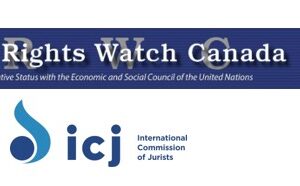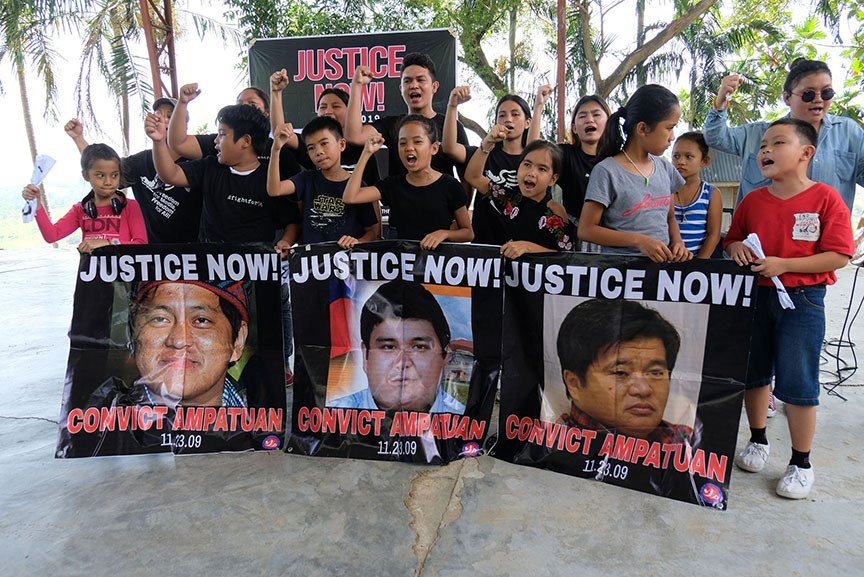
Dec 19, 2019 | News
The ICJ said that today’s verdict by the Quezon City Regional Trial Court on the “Ampatuan Massacre” is a first step in achieving justice for the victims and their families.
The court found guilty several of the principal accused, including Zaldy Ampatuan, who is a former governor of the Autonomous Region in Muslim Mindanao. The Ampatuan Massacre involved the killing of 58 people, including 32 journalists. It became known as the single deadliest attack against journalists globally.
“The Ampatuan massacre was a human rights tragedy that demonstrated how ingrained impunity has become in Philippine society,” said Emerlynne Gil, ICJ’s Senior International Legal Adviser.
She added, “It clearly illustrated how respect for human rights has become a mockery in the Philippines, that it can be casually thwarted by a group of individuals who thought they can get away with the killing of 58 people, including journalists, in broad daylight.”
There are 197 accused named in this case, many of them members of the politically-powerful Ampatuan family. The principal accused, including Zaldy Ampatuan and several of his family members, were sentenced to imprisonment of reclusion perpetua (30 to 40 years) without parole. They were also ordered by the court to compensate the victims of the massacre.
The ICJ urged the Philippine government to use this case to now effectively address the culture of impunity in the country.
“The Philippine government should look to this case and use it more generally as a force for a comprehensive drive against impunity, which has been pervasive in unlawful killings, whether by State or private actors,” said Emerlynne Gil.
Background
On 23 November 2009, Bai Genalyn Mangudadatu, wife of Esmael Mangudadatu, was accompanied by members of her family, lawyers, political supporters, and journalists to file the certificate of candidacy of her husband, Esmael Mangudadatu, for the upcoming elections. They were killed by men who later on were revealed to have been ordered by Andal Ampatuan Sr., Andal Ampatuan Jr., and several other members of the Ampatuan family. The Ampatuan family is the political rival of the Mangudadatus.
The convoy of vehicles accompanying the Mangudadatus was ambushed. Passers-by were also killed by the armed men. Their bodies and vehicles were buried in shallow graves nearby.
There were 58 people killed that day, including 32 journalists who were accompanying the Mangudadatus. This became known as the single deadliest attack against journalists globally.
There were 192 persons named as accused in this case, including members of the Ampatuan family and law enforcement officers who conspired with them.
The trial went on for ten years. On 19 November 2019, Branch 221 of the Regional Trial Court of Quezon City rendered its decision finding guilty beyond reasonable doubt 28 people, including Zaldy Ampatuan, his brother Datu Andal Ampatuan Jr, and several other Ampatuan family members. They were sentenced to reclusion perpetua (30 to 40 years) without parole.
Contact
Emerlynne Gil, Senior International Legal Advisor, International Commission of Jurists, t: +66 8409 235 75, e: emerlynne.gil(a)icj.org
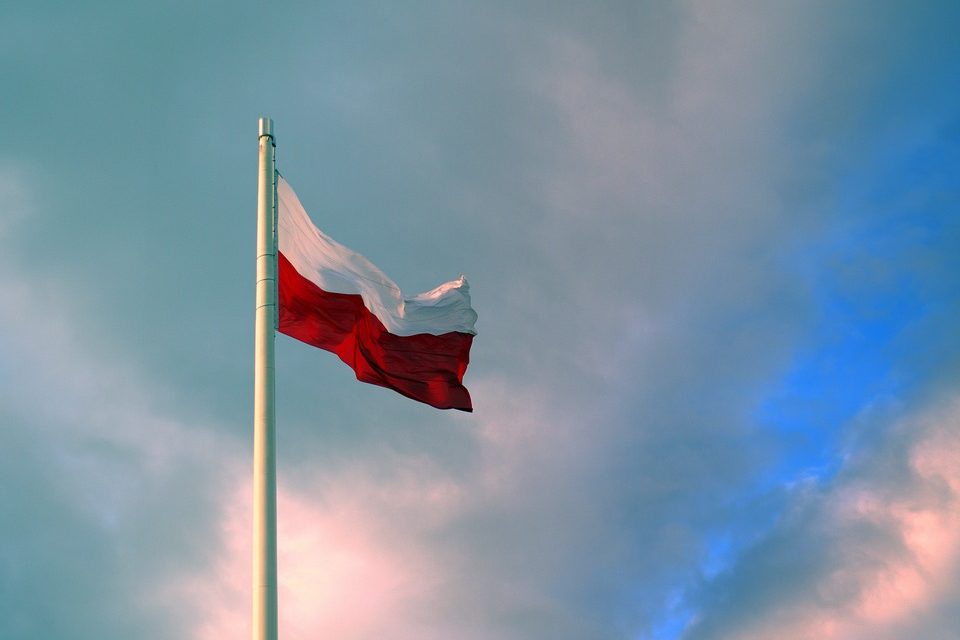
Dec 18, 2019 | News
The ICJ called today on the Polish House of Representatives (Sejm) to drop a draft law that would put judges at risk of disciplinary action for their interpretation and application of the law, including EU and international law.
The draft law would also mean that judges would face disciplinary penalties for legitimate criticism of judicial reforms.
“The Polish Parliament should reject these proposals which would place intolerable constraints on judges in interpreting and applying the law and would undermine their freedom to speak out on vital issues of judicial independence,” said Róisín Pillay, Director of the ICJ Europe and Central Asia Programme.
“Elements of the proposals appear designed to prevent judges from fulfilling their obligation under the EU treaties to apply EU law, which is an attack on the independent exercise of their judicial function” she added.
Under the proposals, judges would face disciplinary action and possible dismissal for refusing to apply a legal provision, unless it had been deemed unconstitutional by the Constitutional Tribunal.
This proposal appears to be a direct reaction to a recent decision of the Labour Chamber of the Supreme Court which, applying a ruling of the Court of Justice of the EU, held that the Supreme Court’s Disciplinary Chamber was not an independent court. The Labour Chamber found that that the Disciplinary Chamber is not independent since its judges are appointed by the National Council of the Judiciary (NCJ). Following a recent constitutional reform, the NCJ is composed predominantly of members elected by Parliament and the executive, contrary to international standards on the independence of the judiciary.
New disciplinary offences for judges under the draft law would also include questioning the status of Polish judges, and “political engagement”. Judges would be prohibited from questioning the status of Polish courts or tribunals or constitutional organs. Futhermore, the draft law would prevent judges’ associations from adopting resolutions “expressing hostility towards other powers of the Republic of Poland and its constitutional organs”.
These provisions would hamper judges’ capacity to criticize reforms which have led to questionable judicial appointments by the NCJ and have seriously damaged the independence of the judiciary as a whole. International human rights law and international standards on the judiciary recognise that judges have a right to freedom of expression and that they have a particularly important role in contributing to discussions on issues of the functioning of the judicial system and the rule of law.
Background
On 19 November, the Court of Justice of the European Union (CJEU) delivered a ruling in the case A.K. and others (C-585/18, C-624/18, C-625/18), on a preliminary question by the Supreme Court of Poland. The preliminary question asked whether the recently established Disciplinary and Extraordinary Chambers of the Supreme Court could be considered to be independent.
The CJEU ruled that a court cannot be considered independent “where the objective circumstances in which that court was formed, its characteristics and the means by which its members have been appointed are capable of giving rise to legitimate doubts, in the minds of subjects of the law, as to the imperviousness of that court to external factors, in particular, as to the direct or indirect influence of the legislature and the executive and its neutrality with respect to the interests before it and, thus, may lead to that court not being seen to be independent or impartial with the consequence of prejudicing the trust which justice in a democratic society must inspire in subjects of the law.”
The UN Basic Principles on the Independence of the Judiciary clarify that all governmental and other institutions must respect and observe the independence of the judiciary (Principle 1), and that judges must decide all matters before them impartially, on the basis of facts and in accordance with the law, without any restrictions, improper influences, inducements, pressures, threats or interferences, direct or indirect (Principle 2). Judges can be subject to suspension or removal only following fair procedures (Principle 17) and only for reasons of incapacity or behaviour that renders them unfit to discharge their duties (Principle 18).
The UN Basic Principles, also affirm the freedom of expression and association of judges (Principle 8) in line with protections under international human rights law, and their right to form and join associations of judges to represent their interests (Principle 9).
In recent years, the Polish executive and legislative authorities have systematically undermined the independence of the judiciary in the country, including through laws that have sought to force the dismissal of judges by lowering the mandatory retirement age. In addition, they have brought the appointment of judges under political control by re-structuring the National Council of the Judiciary (NCJ), with a majority of its members selected by the Polish Parliament. (see ICJ statement)
This move has also politicized the Disciplinary Chamber of the Supreme Court, whose members are selected by the NCJ, and the disciplinary court of first instance. In October 2019, the European Commission referred Poland to the CJEU on the grounds that the new disciplinary regime for judges undermines their independence.
In June 2019, the Court of Justice of the European Union (CJEU) held that the Polish Law on the Supreme Court lowering the retirement age of judges of the Supreme Court and providing discretionary power to the President to allow a judge to remain in office following the mandatory retirement date was contrary to the principle of effective judicial protection and therefore in violation of EU law. In November 2019, the CJEU held that Poland violated the independence of the judiciary by lowering in 2017 the pension age of Polish judges and giving the power to maintain them in office to the Minister of Justice.
The ICJ has documented, and the UN Special Rapporteur on independence of judges and lawyers has affirmed, that the right of judges to freedom of expression is particularly protected when in situations where the rule of law or constitutional order is under threat, they speak out in defence of the independence of the judiciary.
Contacts:
Róisín Pillay, Director for Europe and Central Asia Proramme, t: +32 2 734 84 46; e: roisin.pillay(a)icj.org
Massimo Frigo, Senior Legal Adviser of the ICJ Europe and Central Asia Programme, t: +41 22 979 3805 ; e: massimo.frigo(a)icj.org
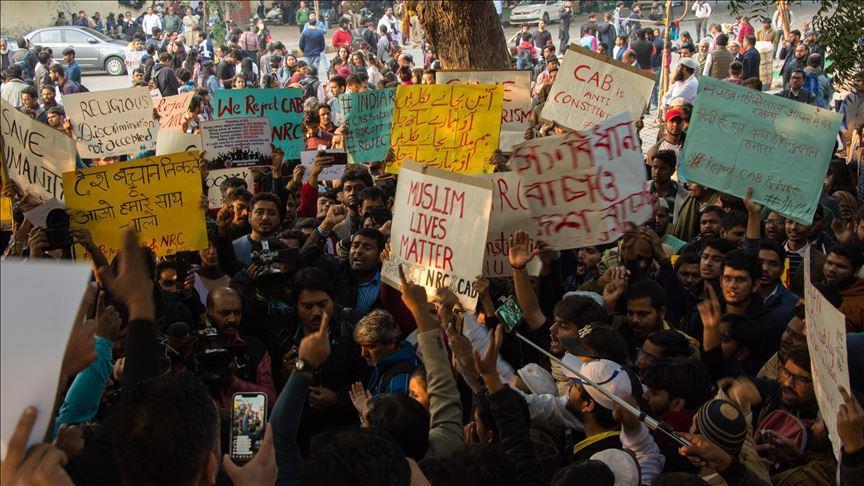
Dec 16, 2019 | News
The Indian Police Service and the paramilitary Central Reserve Police Force must desist from the use of unlawful force and ill-treatment against demonstrators protesting the Citizenship (Amendment) Act, the ICJ said today.
The Indian authorities must also hold police and other public officials accountable for the human rights violations arising from these police actions, the ICJ added.
“The violent tactics that police have used over the past several days in Delhi, Uttar Pradesh, and other Indian states must cease and the government must address the legitimate concerns raised by the public about the discriminatory impacts of both the Citizenship Amendment Act and National Register of Indian Citizenship,” said Frederick Rawski, ICJ Asia Pacific Director.
“Any officials who use excessive force, including the unlawful or disproportionate use of pellet guns or tear gas cannons against unarmed student protestors, must be fully and impartially investigated and held accountable for their actions,” he added.
In its operations policing the demonstrations, the ICJ called on the authorities to abide by Indian Constitutional guarantees and international legal obligations on human rights.
These protect persons from torture and ill-treatment and the rights to freedom of expression, association and assembly.
They also require that police refrain from using unnecessary and disproportionate force and never use potentially lethal force unless to protect against an imminent threat to life.
The ICJ also called on the authorities to ensure that any person detained not be subjected to torture or other ill-treatment; have prompt and confidential access to counsel; and that those injured or otherwise provided with access to medical services.
“The police need to respond to prevent acts of violence, but they must use force only when strictly necessary. Potentially lethal force is only justifiably employed in self-defence or in defence of others against an imminent threat of death or serious injury,” said Rawski.
“If arrests need to be made, they must be done without exception in accordance with the law, respecting the rights of detainees to have access to legal counsel, to be free of torture and other ill-treatment of any kind, and to receive needed medical treatment,” he added.
The ICJ said that the authorities must undertake prompt, independent, impartial and thorough investigation of all allegations of unlawful use of force, with a view to holding accountable any responsible authorities and providing an effective remedy and reparation to victims.
Background
In response to the passage of the Citizenship (Amendment) Act, 2019, protests erupted all over the country, including in Assam, Tripura, Meghalaya, Arunachal Pradesh, Delhi, West Bengal, Kerala, and Hyderabad.
In Delhi and Uttar Pradesh, yesterday, members of the police and Central Reserve Police Force forced their way onto the campuses of Jamia Milia University and the Aligarh Muslim University in response to protests against the Citizenship (Amendment) Act, 2019.
At Jamia Milia University, the police and Central Reserve Police Force used tear gas cannons upon students who had been reportedly protesting peacefully. Police entered the university library and beat students who were there studying for their exams. The police detained (and subsequently released) some 50 students. Some reported being beaten while in detention, held for over six hours in a locked police station, and denied access to lawyers and family. Medical attention was also reportedly denied to some injured students.
At Aligarh Muslim University, the police and Central Reserve Police Force reportedly demolished the gates, and used tear gas, pellet guns, and lathi (wooden sticks) charge. They were said to have entered student hostels, wherein they reportedly caused damage to one room which had students inside it. According to a lawyer at the University, at least one’s student whereabouts is unknown and some 50 students and others have reported been injured, some severely. Some were reportedly taken to the hospital by the police.
The Citizenship (amendment) Act, 2019 amends the Citizenship Act, 1955, which governs questions of citizenship and aspects of lawfulness of migration status in India. The Act gives protected status to Hindu, Sikh, Jain, Parsi, Buddhist and Christian migrants from Pakistan, Afghanistan and Bangladesh, all Muslim-majority countries, who entered India on or before 31 December 2014. Similarly situated Muslims are categorized as “illegal migrants”.
The Bill provides to the above-mentioned religious communities and countries an expedited route of citizenship giving them the opportunity to be eligible for citizenship by naturalization if they have lived or worked in India for six years, as opposed to twelve years, as otherwise required. The Bill controversially excludes from its ambit certain ethnic and religious groups, such as Muslims, in violation of international law and standards protecting against discrimination.
To download the full statement with additional background information, click here.
Contact
Maitreyi Gupta, ICJ India Legal Adviser, t: +91 77 560 28369 e: maitreyi.gupta(a)icj.org
Frederick Rawski, ICJ Asia-Pacific Director, t: +66 64 478 1121; e: frederick.rawski(a)icj.org
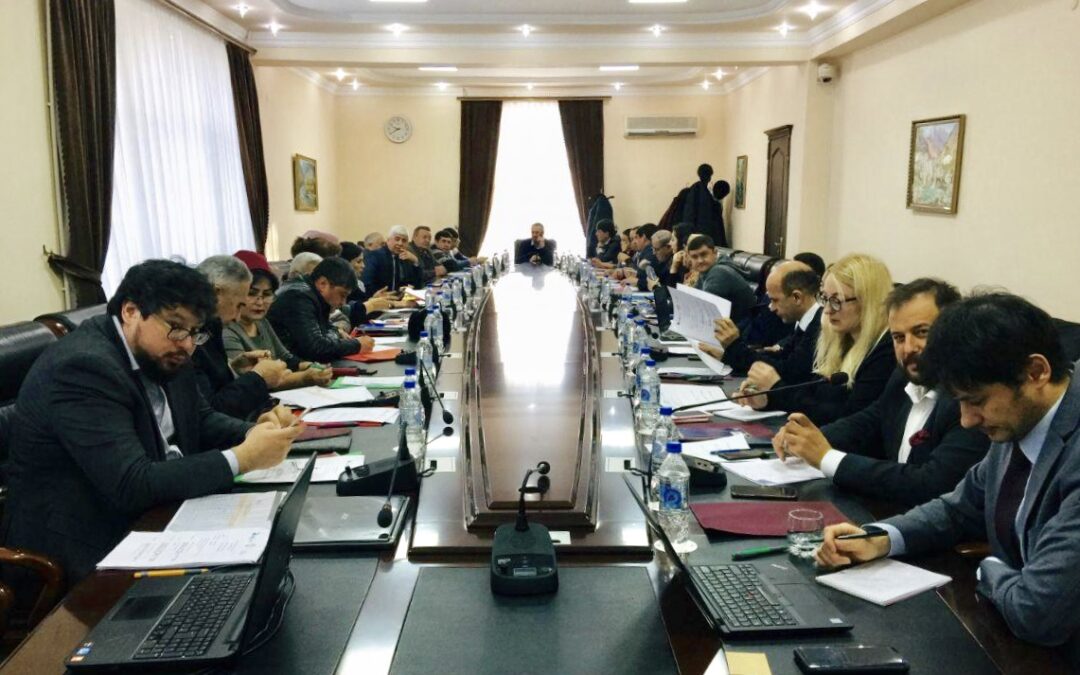
Dec 16, 2019 | Events, News
On 16 and 17 December, the International Commission of Jurists (ICJ) in cooperation with the Tajikistan Bar Association (Tajikistan Union of Lawyers) and the Legal Policy Research Centre (LPRC) is organising a seminar “The Role of the Bar Association in ensuring security of lawyers”.
During the two-day event, lawyers from across Tajikistan as well as members of the specialised bodies on the rights of lawyers of bar associations Kazakhstan and Ukraine will discuss key main challenges lawyers face in their countries when defending their clients.
Regular attacks on independent lawyers as well as effective ways of addressing cases of harassment, intimidation and other interference by the Bar Association and its specialised bodies will be discussed during the first day of the event. During the second day, the participants will elaborate a strategy of development for protection of lawyers in Tajikistan.
The president of the Bar Association of Tajikistan as well as all members of the Commission on the Professional Rights of Lawyers of the Bar Association of Tajikistan will take part in the event.
The ICJ expresses appreciation to the Ukrainian National Bar Association for the participation in the event.
The agenda of the event here.

Dec 16, 2019 | Agendas, Events, News
Today begins in Ankara (Turkey) a one-day workshop for lawyers and CSO practitioners to discuss and brainstorm on an alternative Justice Reform Strategy.
This event is organized by ICJ, in cooperation with its partners Kapasite Geliştirme Derneği and Human Rights Joint Platform, as part of a EU co-financed project Rebuilding and Ensuring Access to justice with civil society in Turkey.
The workshop aims at discussing the key reforms proposed by the Government of Turkey in its Judicial Reform Strategy and provide with an assessment and an alternative plan for reform based on international standards and jurisprudence on access to justice and the independence of the judiciary.
The workshop will provide presentations on international standards on the judiciary as well as on access to justice for human rights violations. It will produce a ten point strategy document to propose reforms that will uphold the independence of the judiciary and access to justice in Turkey.
The project is funded by the European Instrument for Democracy and Human Rights (EIDHR) of the European Union.
Turkey-Workshop-Agenda-AltJRS-Ankara-2019-eng (download the agenda)








